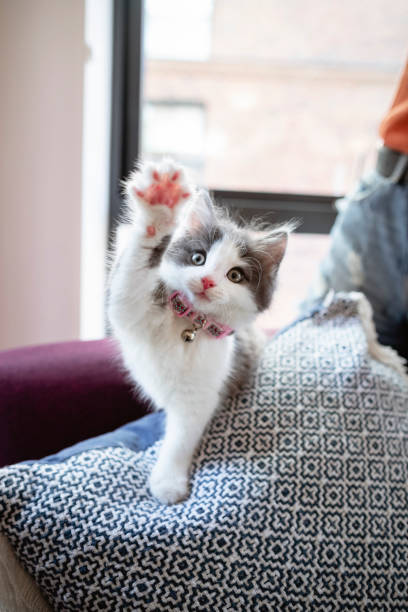The Science Behind Cat Litter: What Keeps Odors at Bay
The Science Behind Cat Litter: What Keeps Odors at Bay
Blog Article

Cats are precious companions in countless homes worldwide, and part of the duty of cat ownership involves picking the right litter and litter box that fits both the requirements of our feline buddies and our own. With a myriad of alternatives available, browsing through the options can be overwhelming. This guide aims to streamline that procedure, providing you with everything you require to understand about cat litter, litter boxes, and systems.
The initial step in cat care is choosing the ideal cat litter. Options range from clumping, non-clumping, silica gel, natural, and natural ranges. Clumping litter is popular for its ease of cleansing, while non-clumping litter is often less expensive and still reliable. Natural and natural litters provide environmentally friendly alternatives however can vary in their absorbency and odor control capabilities.
Modern feline owners can select from a range of litter box systems, including automated and self-cleaning models that offer convenience and minimized upkeep. These systems can be a significant investment but are worth considering for those with hectic way of lives.
Eco-conscious feline owners have numerous options, including biodegradable and flushable cat litters that reduce ecological effect. Nevertheless, it's crucial to stabilize benefit with ecological issues, as some flushable litters might not appropriate for all plumbing systems.
Proper training is essential, especially for kittens or cats transitioning to a new type of litter or box. Consistency and patience are key. Regular cleaning and upkeep of the litter box are crucial for the health and wellness of your feline, along with for smell control in your house.
The benefits and drawbacks of various kinds of cat litter are large. Silica gel litter is highly absorbent and long-lasting but can be more expensive. Natural litters, while safer for the environment, might not manage smells as efficiently as synthetic options. Understanding the particular requirements of your feline and your preferences for maintenance can help in making the very best option.
When selecting a litter box, consider the size, shape, and style that will best fit your cat. Some felines choose open boxes, while others like the privacy of a covered box. Senior cats and kittens might require boxes with lower sides for easy access.
Smell control is a substantial issue for numerous cat owners. Picking the best type of litter, regular cleansing, and using accessories like smell removers and litter mats can help keep your home smelling fresh.
The health tracking litters readily available today can inform owners to potential health issues by altering color in reaction to changes in pH or the existence of blood. Furthermore, the environmental effect of cat litter is an important factor to consider, with numerous owners going with eco-friendly or recycled choices.
Choosing the ideal cat litter, litter box, and cat litter robot maintenance routine is necessary for the health and happiness of your feline, in addition to for keeping a clean and odor-free home. By thinking about the needs of your feline and the useful aspects of litter and litter box upkeep, you can create a comfy and sanitary environment for your furry pal.
How often should I alter my cat's litter? It depends on the kind of litter you're using and how lots of cats use package. Clumping litter must be scooped daily, with the entire box altered every 2-4 weeks. Non-clumping litter often needs more frequent changes.
Are automated litter boxes worth the investment? Selecting the right cat litter, litter box, and upkeep regimen is essential for the health and joy of your cat, in addition to for keeping cat litter robot a tidy and odor-free home. By considering the requirements of your cat and the useful aspects of litter and litter box maintenance, you can develop a comfortable and sanitary environment for your furry friend. For numerous, the convenience and decreased upkeep of automated litter boxes make them a worthwhile investment. Nevertheless, some felines may hesitate of cat litter robot them, so it's not a one-size-fits-all solution.
Can diet impact litter box odor? Yes, a feline's diet can substantially affect the smell of their waste. High-quality, easily digestible foods tend to produce less stinky waste.
By comprehending the large world of cat litter, litter boxes, and systems, you're well on your method to providing a clean, comfy, and sustainable environment for your feline.
Choosing the best cat litter, litter box, and maintenance routine is vital for the health and joy of your cat, in addition to for keeping a tidy and odor-free home. By considering the needs of your cat and the practical aspects of litter and litter box maintenance, you can produce a comfortable and sanitary environment for your furry good friend.